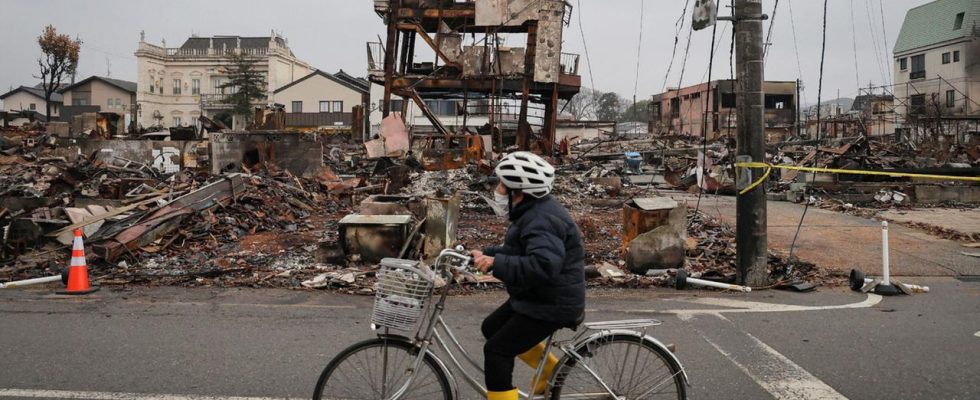A month ago, an earthquake struck the west coast of Japan. Reconstruction can only be achieved in small steps. Tens of thousands of people are still without water supplies.
Exactly one month after the severe earthquake in Japan, volunteers are being sought for reconstruction in the affected region on the west coast. On the Noto Peninsula, around 46,000 houses were destroyed by the tremors on New Year’s Day. Around 14,000 people still live in emergency accommodation and there is a lack of running water in many places.
At the very tip of the Noto Peninsula on the Japanese or East Sea lies the small town of Suzu – one of the worst affected places in the New Year’s quake. Chisa Terashita stands in her kitchen and turns on the tap. Hardly anything is happening. There has been no water since the earthquake, says Terashita: “We only know from TV that there should be water again by the end of February. All we can do is wait for it, but that could take until March .”
Central water pipe destroyed by earthquake
The mother of three children tells a reporter from the Reuters news agency that she and her husband have been saving water and drinking little for a month. But at the same time they need to drink enough to stay healthy. But of course the Japanese woman doesn’t want to complain. “We’re getting used to this life, it’s becoming normal somehow. We’ll get through it one way or another. We have no other choice,” says Terashita.
Because a central water pipe in the remote region burst during the magnitude 7.6 earthquake, people in many places still have to carry canisters every day. According to the prefecture, a total of around 40,000 residents are still without running water.
Military sets up makeshift bathroom
68-year-old Yoshio Binsaki also queued up to take 20 liters of water home. “We mainly use it for the toilet. Because we don’t have water at home, we can’t wash clothes or bathe,” he says.
Yes, bathing, which belongs to Japan like bread belongs to Germany. Every evening the Japanese get into their bathtub before going to bed. This is not yet possible in Suzu. But in one school, soldiers have set up a makeshift bathroom, small but nice, where residents can relax after another hard day of cleanup.
The first shops and schools are reopening
Normality is returning, albeit slowly. Hairdressers are reopening, buses are running, and some schools have resumed operations. Yukiko Kachi is a bit relieved. “We don’t know when everything will work again, maybe at the end of the month or not until March,” she says: “But there is now a laundry cart here where you can do your laundry. We are content with things as they are they are.”
The government and the affected Ishikawa region are currently considering a reconstruction fund worth the equivalent of almost 20,000 euros per person for older and disabled people.
Kathrin Erdmann, ARD Tokio, tagesschau, February 1st, 2024 7:38 a.m

